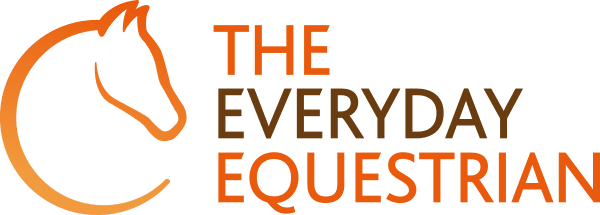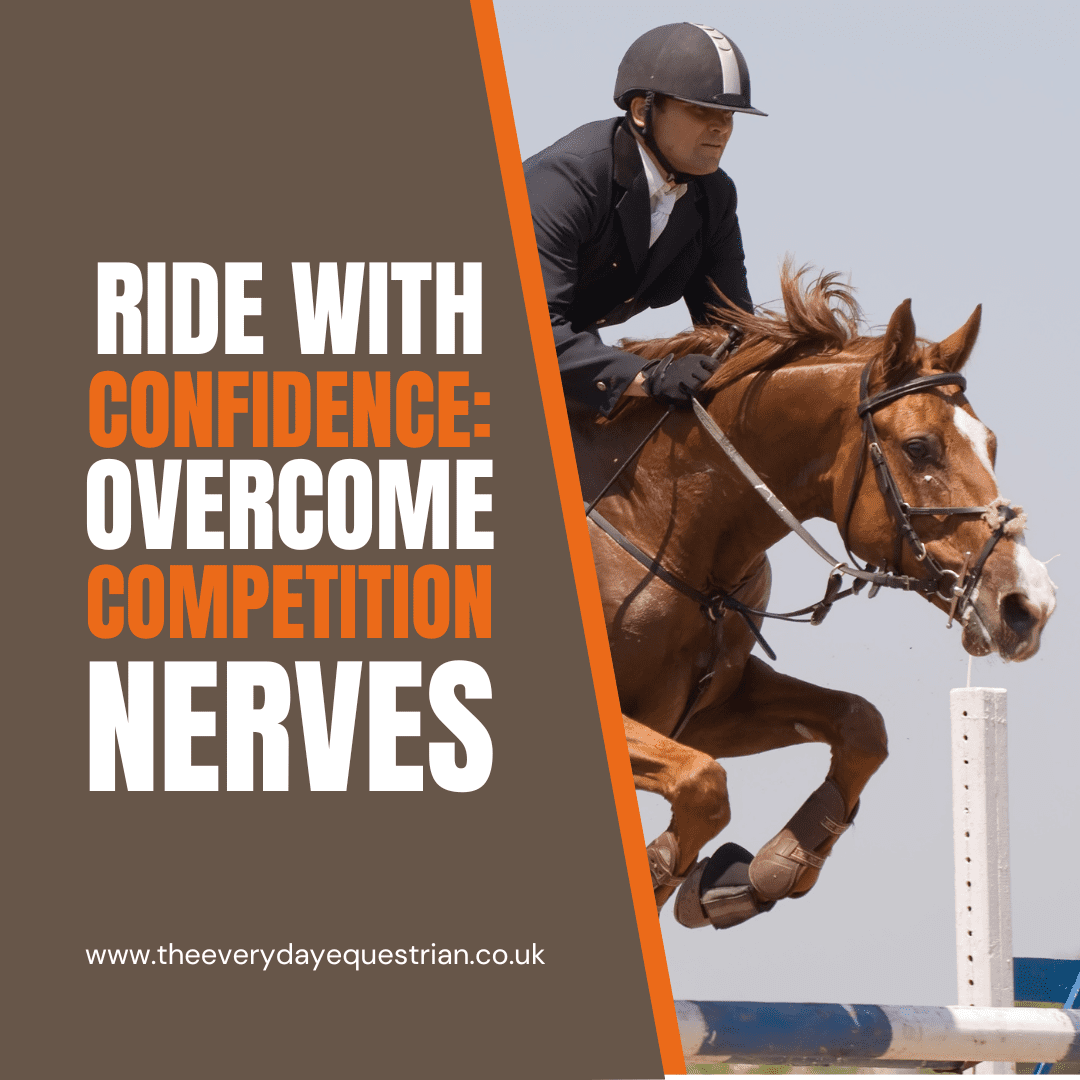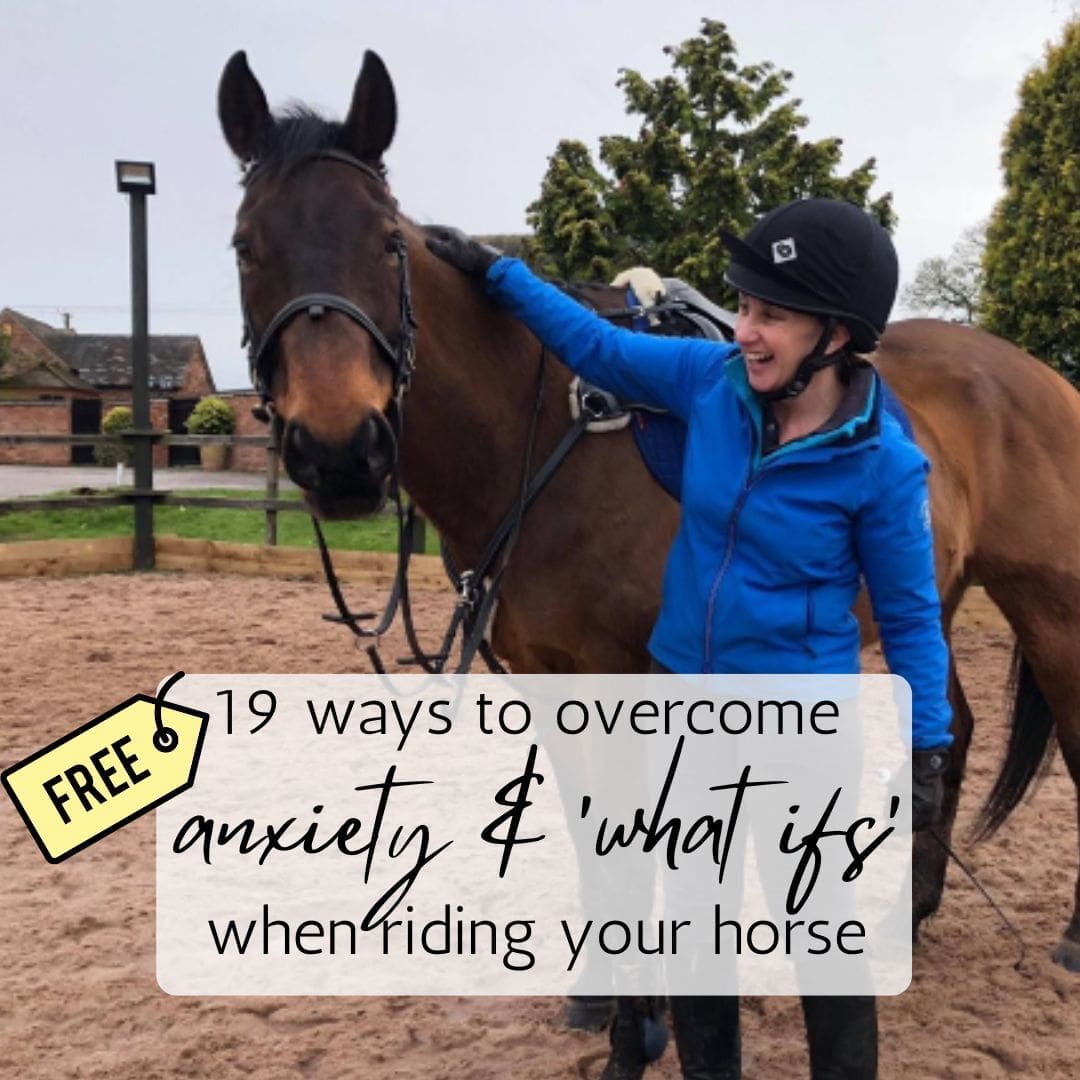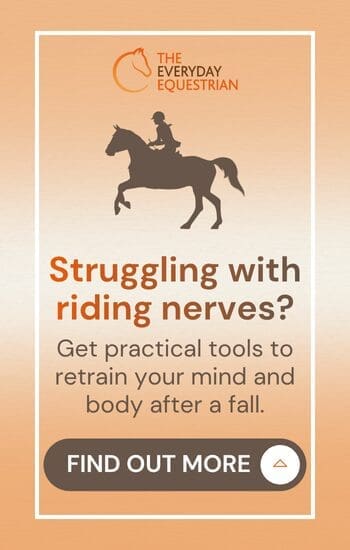Competition nerves
Anxiety is an entirely normal human response to a potential threat and is an integral part of the ‘fight or flight’ response. These instinctive, rapid and very real physical and psychological responses have served us well throughout evolution, and have allowed the human race to survive. This adrenaline-fuelled flight or fight response still works brilliantly to keep us safe, for example, when we cross the road and don’t see the car zooming around the corner, so we immediately step back onto the curb and get out of the way!. The trouble is that our brains have not yet caught up with the rate of change around us; the most ancient part of our brain does not recognise that we’re unlikely to get eaten by a sabre-toothed tiger or be attacked by a rival tribe. The other challenge we face is that our brain does not know the difference between a real and an imaginary threat; it will react in the same way to both!
What does all this mean for us as riders going to competitions? Well, competing can feel stressful, it can be physically exhausting, you might be competing against riders who are better than you (whether that’s really the case is another matter entirely!), you will likely be riding while other people are watching you, and you are ‘putting yourself out there’ and being judged against a set of standards. At the same time, competition provides challenge, the potential for success and achievement and camaraderie, but also uncertainty. All good fun, right?
Competition often triggers the ‘flight or fight’ response in riders; we can experience a wide range of physiological and psychological responses because there is an underlying perceived threat to our sense of self-esteem. Many riders make the mistake of linking our competitive results with our value or worth as a person, and whenever the demands of a competition exceed our perceived or real ability as a rider, anxiety is inevitable. Plus, whenever stress is perceived as negative, it causes anxiety, so how we perceive stress has a big impact on how we view the demands placed on us when competing.
Know your why
The starting point for competing with confidence is to understand why you want to compete in the first place. What are you competing for? To have fun with your horse? To see how your training is progressing? To achieve qualifying results? To prove something to yourself or others? Maybe it’s a long-held dream to compete in a certain discipline or venue? There are no right or wrong answers here, and everyone will have their own reasons for competing, however identifying your core drivers will help you understand your expectations of yourself, your horse and the experience. When you know your why, you can begin to frame your competitive experiences in a more helpful and constructive way, which means that you can begin to discover what preparation and strategies work best for you in the run up to, during and after each competition, building new habits as you progress.
Focus on the process instead of the outcome
All too often, riders focus entirely on the outcome or results they want to achieve. Maybe you’re driven to achieve a particular score, placing or qualification. These can all be important, but when we focus only on the outcomes we can become overwhelmed and are less able to influence how we actually ride so that we can reach those goals. Elite athletes across a huge range of sports are able to narrow their focus, get ‘in flow’ or ‘in the zone’ so that they are more present to what they are doing in any given moment. They follow a well-practised and highly developed set of routines which allow them to engage only in the process they’re following. These elite athletes focus only on the things that are actually within their control, and let go of everything else.
So what can we learn from this? Well, when we focus on what we can do and control, we can ignore all the irrelevant distractions around us and those things that we really can’t do anything about, which means that we are more self-aware, better able to manage our thoughts and emotions, and ultimately to ride better. It doesn’t matter whether you’re videoing your Prelim dressage test at home to enter an online competition, you’re show-jumping at a new level, or you’re competing at a new venue, we can all practise this approach to focusing on the process rather than only on the outcome. When you’re able to do this effectively, you’ll be way more likely to achieve the results you want!
Planning, preparation, performance
One of the most influential factors on whether we compete with confidence (and actually enjoy it too!) is our level of planning and preparation. Imagine how much more confident you’ll feel as you go into the arena, when you know with 100% certainty that you’ve prepared as thoroughly as possible, that you know exactly how you’re going to ride the course, test or class, and that it’s an opportunity to gain lots of constructive feedback from your horse and from the people that matter about how you will improve for next time.
When you know your why, then you can plan the how. Ask yourself, where are you now in your training? What do you want to do or achieve? How will you get there? If your goal is to simply enjoy going out to compete, then what needs to change or how might you ‘measure’ how well you’ve achieved this goal, in order for this to happen?
The week before the competition:
Use this time to manage all the practical details for yourself and your horse. Consider your horse’s management, training, lessons and level of fitness. You might find it useful to create a daily plan and diary of what you will do and when in the run up to competition day; what checks do you need to make, what decisions are important, how will you assess your horse’s preparation and readiness for competition and how will you reassure yourself that you’re both as prepared as you can be?
You might find it useful to create ‘positive cues’ which will help create more helpful stories in your mind. For example, you might set up a reminder on your phone every few hours, which prompts you to remember a time when you rode really well, or had a fantastic experience with your horse, or perhaps helps you to find perspective around the competition, such as “this is an opportunity for us to continue our training in a different environment”.
If you notice that you’re already starting to experience nerves and anxiety, then consider how you might support your best friend who is feeling the same way about competing. What would you say to him/her? How would you boost him/her up? How would you reassure him/her? How could you help him/her to refocus? What practical advice would you give him/her? When would you next check in with him/her? You might find it useful to write down your answers to these questions… then read them back to yourself! Learn to be kind to yourself (which I think many riders can struggle with!), and become your own cheerleader.
The day before the competition:
Check your times where appropriate, planning your day so that you have plenty of time for travel, settling in at the venue, warming up and find space for some down time for you and your horse between classes. It can be so powerful to actually write down your practical plan for the day, alongside how you will manage your mindset and set yourself up for a fabulous day. Use your imagination to visualise exactly what you want to happen throughout the day; play your round in real time on a cinema screen in your mind and experience the sights, sounds and sensations of it going precisely how you’d like it to happen. If you find it difficult to visualise this, try writing out the story with as much detail as possible of what will happen and how amazing your experience will be. Again, if this doesn’t resonate with you, record yourself on your phone speaking out loud and explaining exactly how your competition will happen, and listen to it as often as you can (in a safe environment obviously!).
On competition day:
The trick to managing competition nerves is having a set of strategies that work for you before, during and after the event (and not all techniques will work for every rider, so you’ll need to do some trial and error to decide which is the most powerful for you). It’s hugely powerful to set your intention for the day; what do you need to believe/think/feel/do in order to compete with confidence and have a fantastic experience? This then becomes your anchor throughout the day.
This ‘toolkit’ of confidence-building strategies will develop over time, and it’s important to practise these different techniques in advance of the competition day, and even more importantly when you’re not feeling nervous and anxious. If you only ever try and use these techniques when you’re already in a negative state, you’ll be likely to forget they even exist, never mind use them effectively! Further, learning to manage your mindset on a day-to-day basis will have a massive impact on how you feel about competing and on your performance, so make this a priority going forward and you’ll reap the benefits across all parts of your life, not just around riding.
Breathing techniques
When we can better manage our physiology, i.e. our physical reactions to anxiety, we can begin to manage our responses more effectively. When we’re nervous and in ‘flight or fight’ mode, we often use quick, shallow breaths which can even cause us to feel even more anxious. There are a wide variety of breathing techniques you can use to slow your breathing, slow your heart rate, and return the blood supply to the rational parts of our brains, so that we can become more present and ride more effectively. Try breathing in through your nose for count of 4, holding your breath for a count of 4, then breathing out through your mouth for a count of 5. Repeat this, each time extending how long it takes you to breathe out through 5, 6, 7, etc.
Perspective
Changing the way you think about competitions can also be helpful. Thinking about the competition as training may put less pressure on you, allowing you to attach less significance to competitions and in turn reduce anxiety about your performance. A simple change in perspective is often all it takes to find a sense of control and calmness. Key questions can be a really powerful way to bring yourself to a way of viewing the situation, for example, how else could I look at this experience? Will this even matter in 5 year’s time? What if this feels exactly how I want it to? Where can I gain really valuable insight into our training today, so that we can take our next positive steps? The list is endless, and I’d encourage you to come up with your own key questions that will resonate and allow you to find a broader perspective of the 5-minute test, show jumping round, endurance ride or showing class.
It’s easy to get stuck in a negative mindset, worrying about the unhelpful ‘what ifs’ and focusing on what you don’t want to happen. A really simple technique to play with is to flip the narrative of your negative inner voice to the opposite. For example, what if I ride really well and we both have an amazing experience? What if we exceed all expectations? What if this is easy and enjoyable? What if I am more than good enough? What if this is the day I give confidence to my horse? What if all our hard work pays off? What if today is the best day ever? When you ask yourself questions like these, you start to open up your mind to the possibilities and opportunities available to you, rather than only seeing the problems, limitations and barriers to doing what you love with your horse.
After the competition
Many riders completely miss out on the most important part of training and competing, and in doing so, lose a hugely valuable opportunity to consolidate their progress and achievements, to recalibrate and plan for the future. When we reflect on what went well, we are better able to figure out what actually worked and helped us to make progress, so that we can do more of the things that have a positive impact on our experience and outcomes. Being reflective means that we can also identify those areas for development, those things which are in our control that would be ‘even better if…’. When we consciously recognise and reflect on these two aspects of our experience, we become more able to direct and make progress in our training and future competitions. Find time within 48 hours of the event to reflect on the key objective learning points from your experience, write them down and keep records, then you can formulate a plan for both training and competing in the future. Finding feedback instead of failure is essential for both horse and rider!
Conclusion
Competing with your horse can be amazing! It’s absolutely normal to experience nerves (we’re all human after all), and with practice, we can all learn to manage our mindset so that we can feel excited, and confident and thoroughly enjoy competing with our horse. Let’s do this! Click HERE to find out more about how I can help you achieve your equestrian goals!



